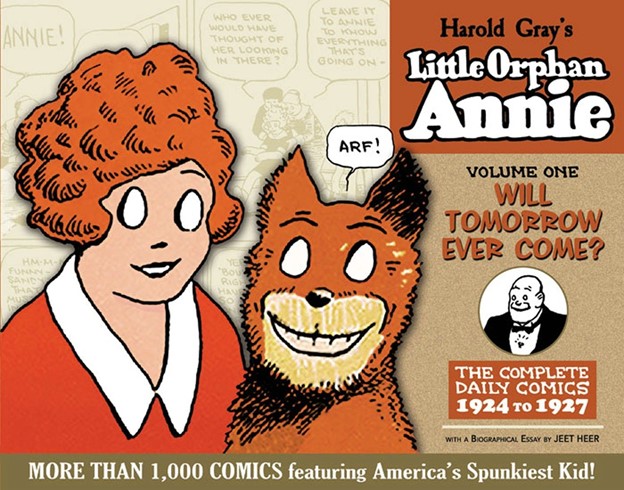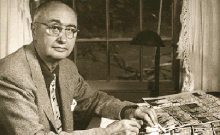Little Orphan Annie – Survivalist Edition

While most of us are generally familiar with Little Orphan Annie from comic strips, Broadway, and film, she’s a bit of an afterthought in today’s world. However, she’s an orphan with no one to protect her. Thus she’s scrappy and knows how to handle herself. This makes her a bit of a role model for a young generation in a post-apocalyptic world. As a result, I believe this story bears a deeper consideration.
Today on Rob Raskins’ Millionaire Survivalist, we’ll take a deeper dive into the story world of Little Orphan Annie, including the underlying philosophy and social messages inherent in the themes and plots of the classic comic strip.
Meet Harold Gray

Though the story began as an 1885 poem called “Little Orphan Annie” by James Whitcomb Riley, the story we know today is the brainchild of comic strip artist Harold Gray (pictured above), who began the strip in 1924. The New York Daily Tribune was reluctant to run the strip at first since Harold Gray’s conservative, even Libertarian politics were diametrically opposed to the left-leaning Tribune Media, the newspaper’s parent company. Finally, the comic was printed in the August 5th edition when a test run proved popular with readers.
What began as a weekly comic strip soon became a daily strip as his fanbase grew, a fact Tribune Media could not contest. Gray’s fame and subsequent fortune grew during the Great Depression, as economic struggles increased and took center stage in the households of millions. Gray’s success became contentious by critics of the strip’s stance against communism, organized labor, and FDR’s New Deal. However, the core fanbase remained fiercely loyal, as did Tribune Media to its own sales. But let’s not get ahead of ourselves.
According to Gray, it all began when he walked down the streets of downtown Chicago looking for story ideas. He met a little ragamuffin girl named Annie. She had common sense and knew how to take care of herself, which Gray respected. At the time, a fraction of the comic strips focused on a female character, none of which had Annie’s wits and street smarts. Gray’s idea to center his stories on Annie as an orphan makes her struggles against the world a never-ending source of storylines.
Enter Daddy Warbucks
Oliver “Daddy” Warbucks was something of a rags-to-riches story. The large, tough, streetwise machine shop owner seized an opportunity as a munitions producer for the WWI war effort. Later, he married a woman of modest means, and they never produced any children. While he was always away on business, she focused entirely on social climbing.
When Warbucks met Annie, she won him over with her chutzpah and self-reliance, along with her uncompromising morality in the face of danger. This compelled him to protect her and treat her as his own child. This is why he tells her to call him “Daddy.” This didn’t sit well with his socially conscious wife, who took every opportunity to throw her out of their house.
With Warbucks and Annie as the central figures of the classic story formula and plot, you can be assured that every story would give Annie an opportunity to struggle and Daddy Warbucks an opportunity to elevate her from her suffering.
Analysis
Despite the large fanbase dating all the way back to the 1920s, the concept of a popular media comic strip promoting the rights of people and children to suffer through life without government support made Gray a bit of a controversial figure. Using storylines to promote the war effort by creating Annie’s Junior Commandos to recycle scrap metal for the war effort certainly benefitted our society and led to social praise of children in real life who participated. Still, the media constantly criticized him for promoting the supremacy of an unregulated, winner-take-all society with no social justice, labor laws, or interference with the wealthy.
Conclusion
Regardless of anyone’s political philosophy, the message of self-reliance, struggle, and morality at any age and income level may seem old-fashioned, but it’s real life. I think this story and these characters deserve to be seen as something other than yet another Broadway child star looking for fame and fortune. If the SHTF and society collapses, the orphans and opportunists will be all that remains. This makes them the heroes to the common man, which is all they were ever meant to be.
For more information, click here: https://www.britannica.com/topic/Little-Orphan-Annie-American-comic-strip
